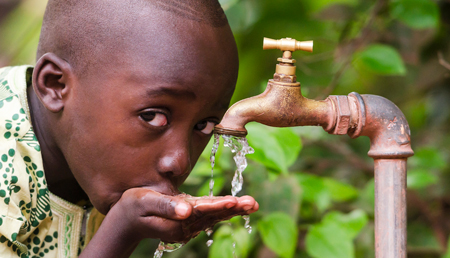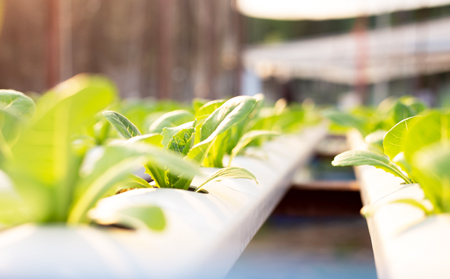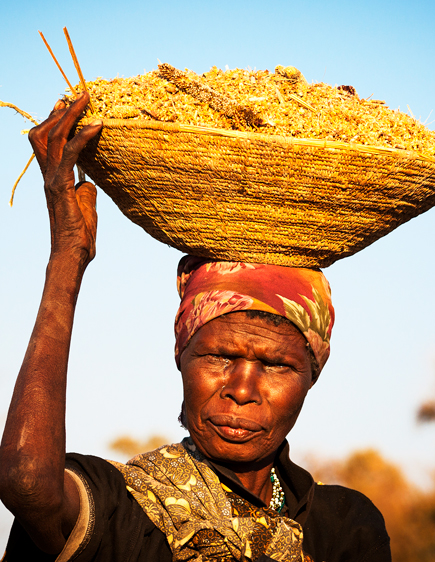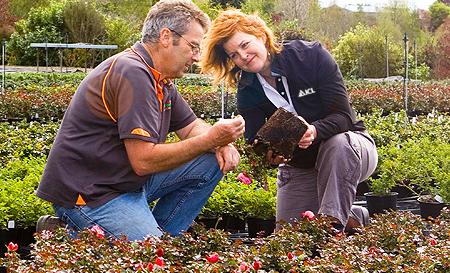When you see or hear the word “sustainability,” various things may come to mind. For some of you, it’s water conservation and responsible land use. For others, it’s reduced plastics or recycling. But for a lot of folks, sustainability remains a hazy concept. If that’s you, that’s okay. You’re not alone.
We often share that sustainability is a priority for us at ICL. For us, sustainability covers a lot of ground. As a global leader in our industry, we’re committed to a sustainable future for people, communities, and our planet. That’s why you’ll hear a lot more about the topic as we all grow in understanding what a sustainable future can mean.
Expanding the vision of sustainability
When you hear about global sustainability, goals usually trace back to late 2015. That’s when the United Nations took the step to define sustainability and help clarify the concept for everyone. The result was 17 sustainable development goals (SDGs) designed to achieve a better, more sustainable future for all by 2030. Though environmental issues are part of this plan, the concept involves much more.
If you’re not familiar with these global SDGs, some may surprise you. The goals include Climate Action, Clean Water and Sanitation, Responsible Consumption and Production, and Affordable and Clean Energy. But these sustainability goals also include No Poverty, Zero Hunger, Good Health and Well-Being, Quality Education, Gender Equality, and more.

While 193 countries officially adopted the U.N. goals, ICL was among the first companies worldwide to incorporate them in our practices, materials, and product lines. We stay committed to the U.N. SDGs. We continue to strive to improve people’s lives and the environment—and not just from the sidelines.
That’s one reason we were honored when the International Fertilizer Association (IFA) recently named Raviv Zoller, our President and CEO, as Chairman of its Sustainability Committee. Together with IFA, we’re committed to creating an impact for a sustainable future—for the fertilizer industry and the world.
Relating sustainability to growing goals
We realize some of you may wonder how your work as growers and distributors—and ours as fertilizer producers—relates to some SDGs. But we’ve also watched many of you take steps to incorporate sustainable practices in your growing operations and your business.
Many growers are recycling plastics or moving toward alternative, non-plastic container materials. We've seen water reclamation systems grow in use, along with hydroponic growing systems that reduce water usage significantly. As your partners in growth, we’ve responded with water-soluble hydroponic growing solutions formulated specifically for you.

Many of you have switched to more energy-efficient greenhouse lighting systems. Some of you are capturing and redirecting your on-farm CO2 production for on-site greenhouse CO2 enrichment. Gender equality has garnered added importance in hiring and daily ops. And, if recent industry surveys hold true, many of you plan to expand your sustainable practices significantly.
As an industry increasingly impacted by climate change, every decision matters. Many of you are turning to surfactants like our water-conserving H2Pro wetting agent to help conserve water resources and improve water availability in the root zone. By growing with Osmocote, the most technically advanced controlled-release fertilizer of its kind, you’re improving growth with less nutrient input and less environmental impact to make a difference in land, water and air.
Creating sustainable impact at ICL
As we’ve said before, producing fertilizers is an energy-intensive business—but one that intertwines with sustainability on many fronts. The U.N. SDG of Zero Hunger may not seem closely related at first, but mineral fertilizers are responsible for more than half of the world’s food production. By making existing agricultural lands more productive, we can aid the growth of more affordable food to help meet this goal.

Improved productivity due to innovative plant nutrition and protection products also helps preserves non-agricultural land for natural habitats to protect biodiversity. Innovation for increasingly precise fertilizers, as noted in the World Economic Forum’s Top 10 Emerging Technologies report for 2019, greatly reduces the environmental impact of growing food and ornamental crops, which helps mitigate climate change. But we look inward as well.
Since 2008, ICL has reduced our global greenhouse gas emissions by 24% companywide. That’s more than a million tons of CO2 equivalent emissions. We’ve switched many facilities to natural gas usage, reducing both greenhouse gas and other emissions. Most of our European sites have transitioned to 100% renewable electricity. We also plan to install solar energy capacity in several sites in upcoming years—and our plans continue to expand. You can read more about ICL’s global sustainability commitments including our 2020 Corporate Responsibility Report here.
Cultivating sustainable partnerships with you
The final U.N. Sustainable Development Goal, No. 17 on the list, is Partnerships. We take that goal seriously, too. Our quest for greater sustainability extends up and down the supply chain. When you do business with us, you can be confident that sustainability helps drive the products you use from beginning to end.

At ICL, we believe we can help growers like you grow more sustainably and grow a better world. Give us a call and learn more about our products, our people, and our commitment to creating an impact for a sustainable future. Let us be your partners in growth. We’re committed to caring for each other and for our world.
